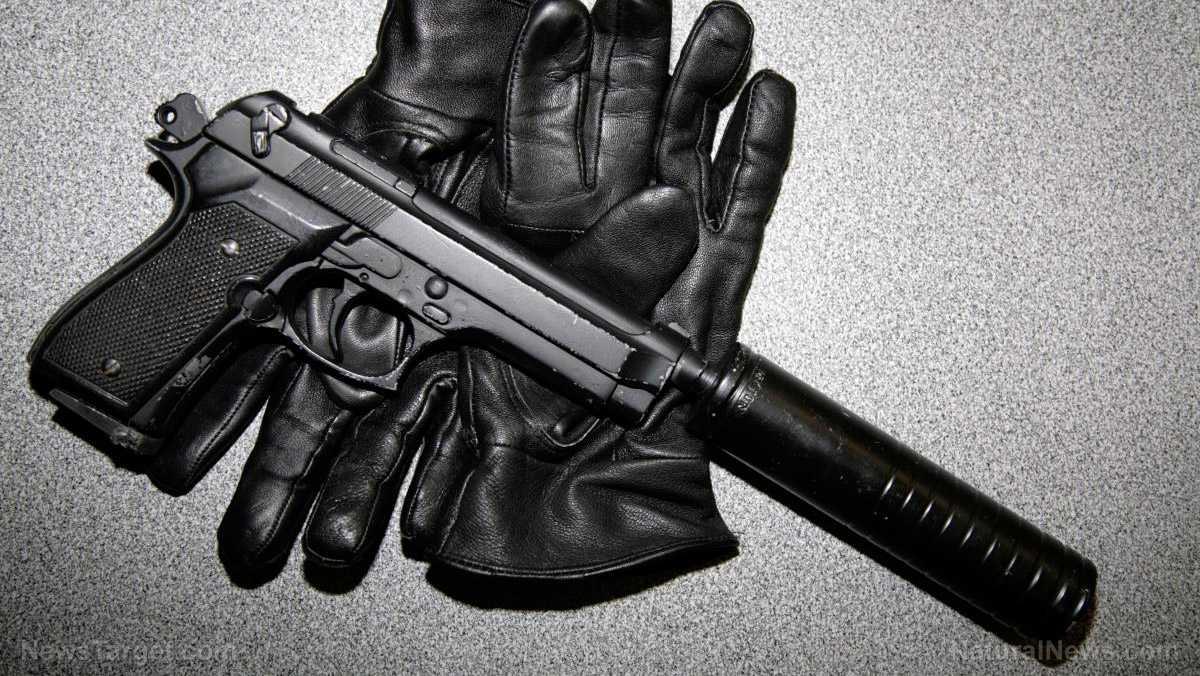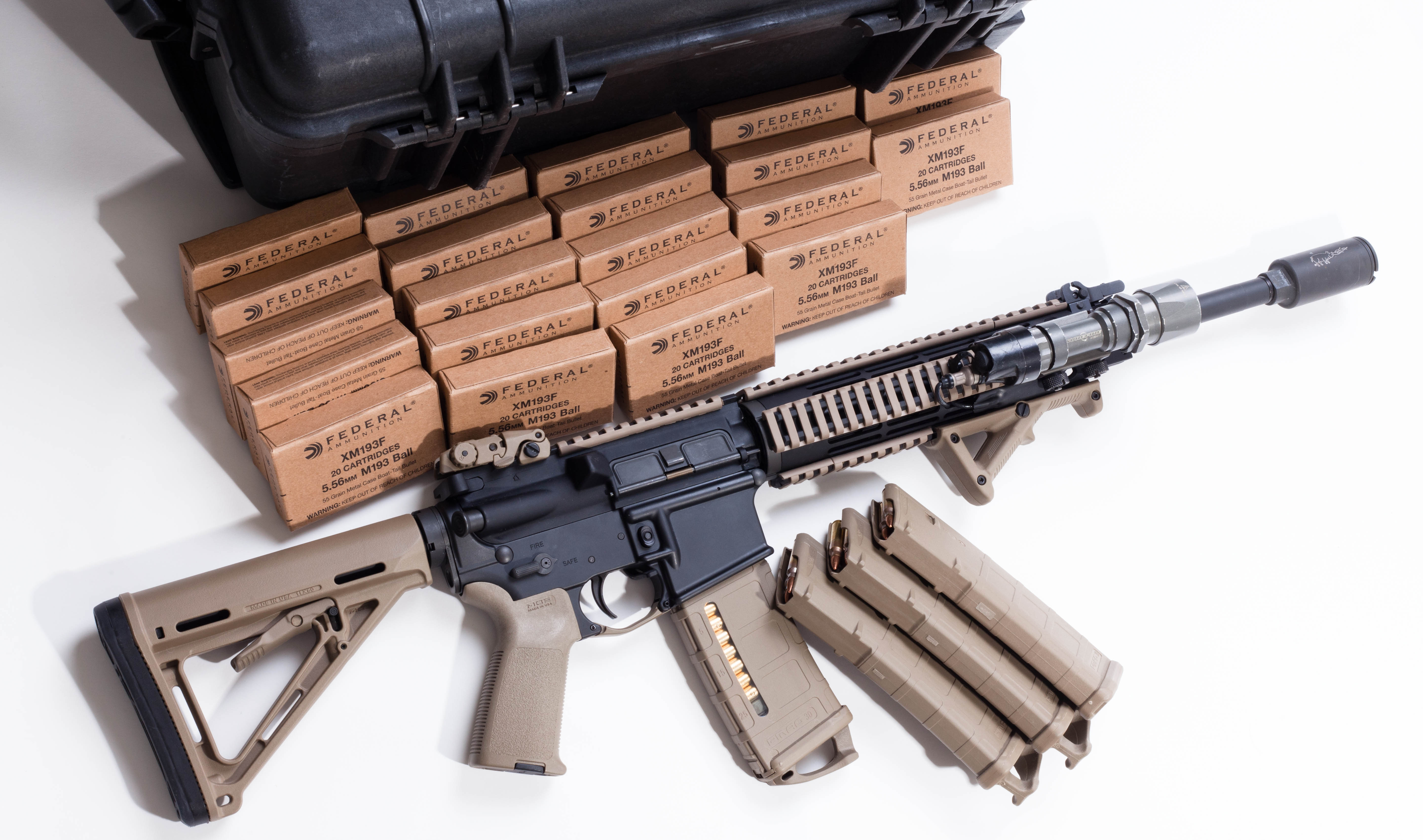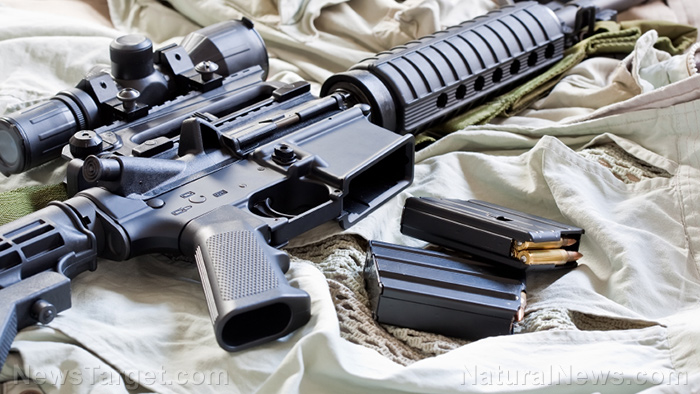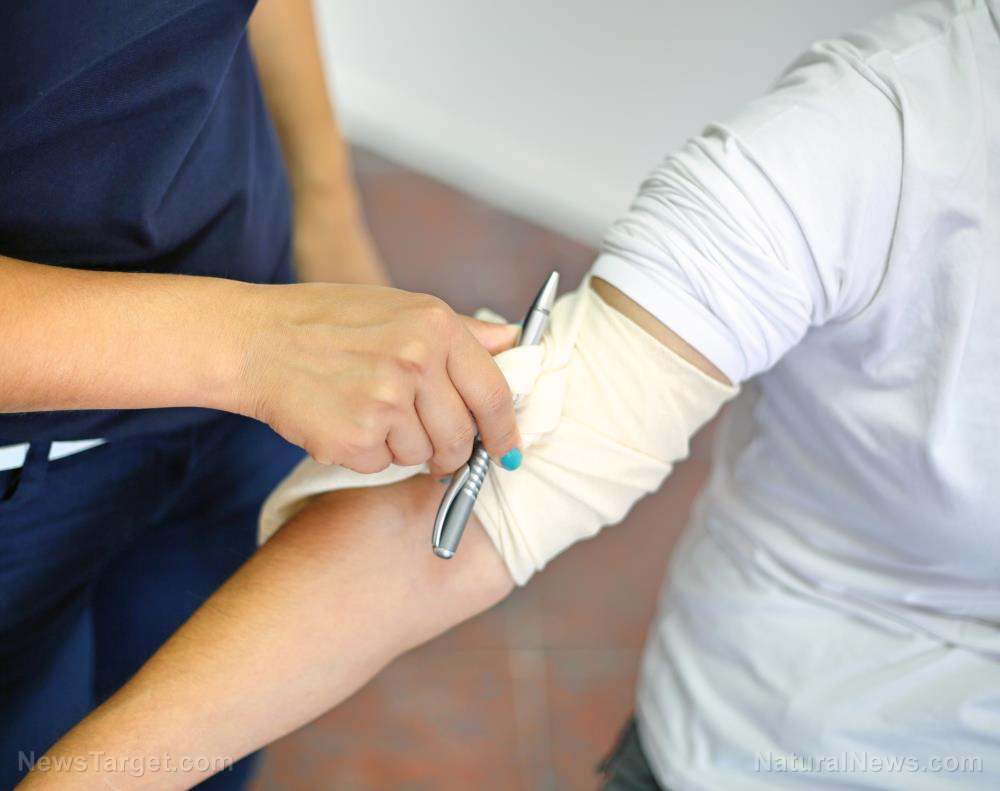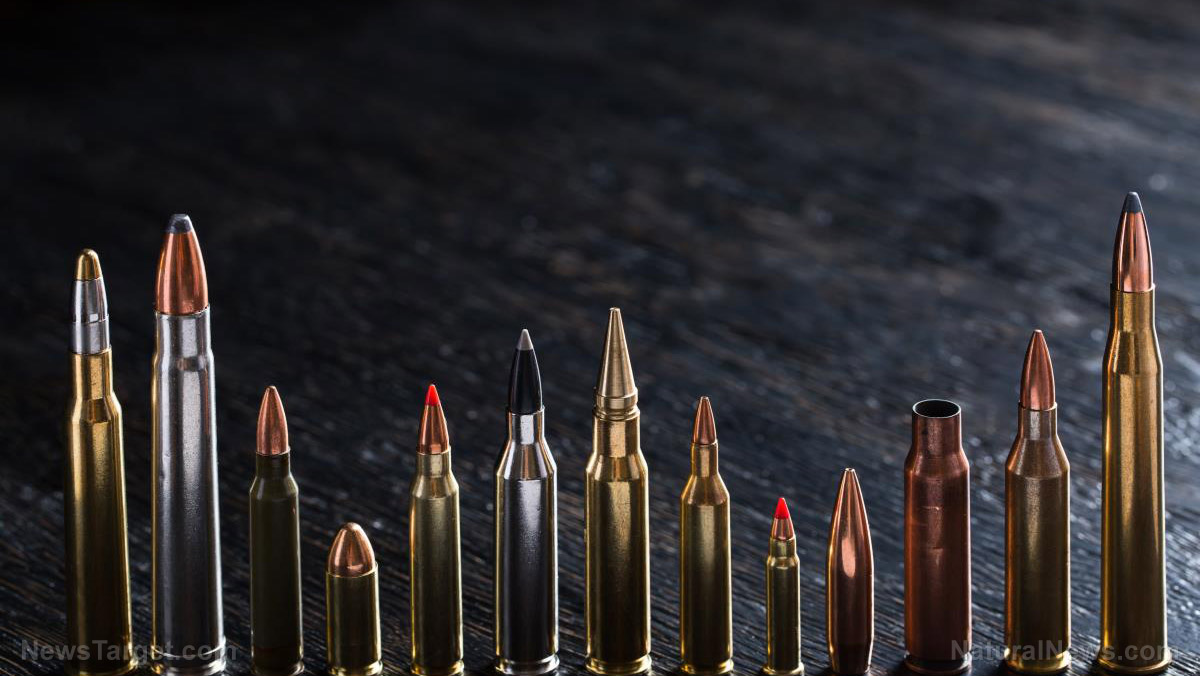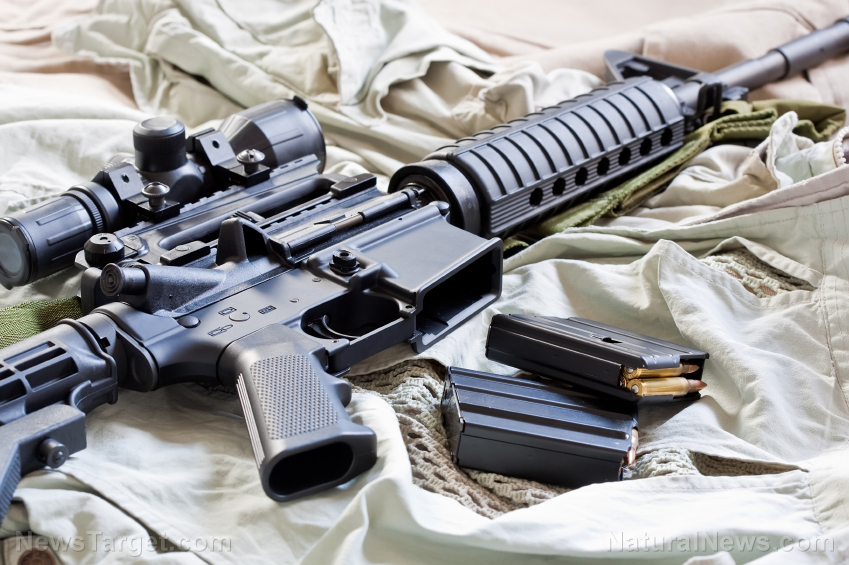Firearms maintenance tips: How to keep your guns rust-free
10/21/2019 / By Edsel Cook
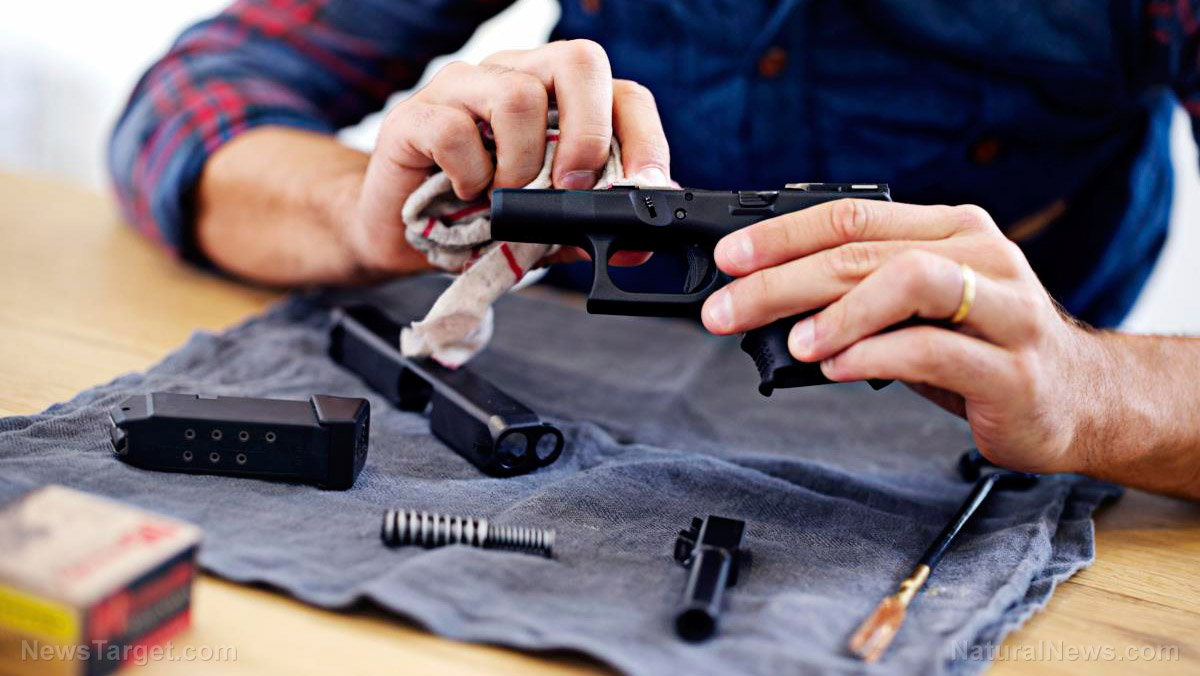
Like anything made from metal, guns will corrode over time from exposure to moisture. Here are some helpful tips to remove rust from your firearms and keep them from returning anytime soon.
Several factors contribute to the formation of rust. The type of metal that makes up the parts of the gun may affect the speed at which it rusts. Environmental conditions like humidity, salt, and corrosive chemicals in the air will accelerate the rusting process.
Another common reason is physical contact with rust-causing agents. For example, the tanned leather of gun holsters may retain chromium salts from the tanning process. Those salts will cause rust to form on any metal part that presses into the treated leather.
Likewise, the body chemistry of a gun owner may have higher pH levels than usual. The acidity gets compounded by sweat, which is acidic and salty enough by itself.
Fortunately, removing rust from guns is easy. Unless the corrosive agents got inside the gun, anyone may get rid of it with ease. (Related: Surviving urban hell: A prepper’s essential guide to finding your way in a grid-down city.)
How to keep a firearm from rusting
To keep rust from forming on the firearm, a gun owner must regularly wipe the weapon down with a clean, oiled rag. After the cleaning session, the gun goes into a dry storage area with a desiccant or similar way to control moisture.
In case the gun got doused in any water – especially saltwater – strip it and lube every metallic part.
It is possible to air out the wet weapon with a high-pressure air blower. Just make sure to dry everything.
Apply a thin coat of oil to every surface of every metal part. Skip this for plastic parts.
Perform this process after using the gun in corrosive atmospheres, humid environments, and near bodies of saltwater. Likewise, people with high body pH levels or those who sweat a lot must do the same.
Take care when storing the gun in a case or holster. Make sure it doesn’t come into contact with any leather, which captures moisture and may leech chemicals and dyes.
How to get rid of rust on a gun
Sometimes, a gun will get rusty. In such cases, the owner must evaluate the severity of the rusting.
If rust completely covers the exterior or interior of the gun or has caused significant pitting, take the weapon to a professional gunsmith.
If the rusting appears minor, a prepper may clean his gun himself. Get a rust remover, several rags made from natural cloth, 000 and 0000 steel wool, and a fine copper brush.
Make sure the finish of the gun will not react badly to the rust remover. Wear protective gloves and eye-wear.
Take the rag and soak it with the rust remover. Wipe down the rusted area until it becomes moist without dripping. Wait for five minutes or the recommended time on the instruction manual of the rust remover.
It’s time to remove the rust itself. Take another clean rag soaked in rust remover. Firmly rub away.
If the rag doesn’t work, use the copper brush. Scrub in the direction of the grain in the metal. Now and then, wipe the area down with another soaked rag.
In case the brush fails, switch to the 0000 wool. And if that doesn’t work, grab the 000 wool.
Check any pitting for rust. If none remains, wipe the entire area with a fresh rag and cleaner, then rub it dry and reapply lube.
Inspect the condition of the firearm’s finish. If a spot appears damaged, cover it or have it fixed to keep rust away.
Need more tips on gun cleaning and maintenance? Visit SurvivalGear.news to learn more.
Sources include:
Tagged Under: DIY, firearms, firearms maintenance, Gear, gun cleaning, gun maintenance, gun owners, guns, how-to, preparedness, prepper, prepping, prepping skills, self-defense, survival, survival gear, survivalist, weapons
RECENT NEWS & ARTICLES
COPYRIGHT © 2018 SELFDEFENSE.NEWS
All content posted on this site is protected under Free Speech. SelfDefense.news is not responsible for content written by contributing authors. The information on this site is provided for educational and entertainment purposes only. It is not intended as a substitute for professional advice of any kind. SelfDefense.news assumes no responsibility for the use or misuse of this material. All trademarks, registered trademarks and service marks mentioned on this site are the property of their respective owners.


